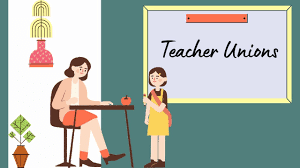Supreme Court Held Up Collective Bargaining Rights of
Teachers
On March 29th the Supreme Court,
which has a seat vacant since the Feb. 13 death of Justice Antonin Scalia, came
down with a 4-4 split decision over Freidrich v. CTA, a lawsuit aimed to
strike down “fair share fees” that help cover the costs of collective
bargaining for unions. When the Supreme Court is deadlocked,
the lower court’s decision in the case is upheld, which in this case means the
current law will stand allowing unions to bargain collectively for competitive
salaries, smaller class sizes, safer schools, and better learning environments
for students.
The case was brought by the Center for
Individual Rights (CIR), a Washington, D.C.-based public interest law firm. CIR
has also pursued lawsuits seeking to ban affirmative action and racial and
gender preferences, including California’s Proposition 209.
If the Supreme Court had
ruled in favor of Friecrich, the bargaining and political clout of the
California Teachers Association and other public-employee unions would have
been significantly undermined. The loss of money from “free-riders” – those who
benefit without paying – would threaten a union’s ability to effectively
represent employees.
Further, according a
report by the Economic Policy Institute, in states that prohibit
collective bargaining, public employees earn lower wages and compensation than
comparable private sector employees, and this low compensation may impede state
and local governments from recruiting and retaining highly skilled employees
for many of their professional and public safety occupations. The report also
found that
public-sector unions
raise wages of public employees 5 to 8 percent more than nonunion public
employees.
Many teachers,
politicians, and professors hailed the decision. CTA President Eric C. Heins
criticized the legal challenge, arguing the high court “rejected a political
ploy by the wealthy corporate special interests backing this case to make it
harder for working families and the middle class to come together, speak up for
each other and get ahead. The decision recognizes that stripping public
employees of their collective bargaining rights in the workplace is a step in
the wrong direction.”
California Attorney
General Kamala Harris also commended the decision.“(The) ruling protects the
right of public employees working in our schools, universities, hospitals and
police agencies in California and across the nation to negotiate fair wages and
benefits, without restricting any individual employee’s freedom of speech,”
Harris said. “While this decision is a victory, we must keep fighting to
protect the ability of working families to make a living wage and pursue the
American dream.”
“Allowing collective bargaining
strengthens teachers’ resolve in order to work together for what’s best in
education,” said Leanna Goldenberg, a teacher and union board member in the
Santa Clara Unified School District.. “Teachers deserve to voice their opinions
on what’s best for their students.”
UC Irvine law school professor Catherine Fisk stated, “Usually
the Supreme Court takes cases for the purpose of resolving conflict in lower
courts. Friedrich is unusual because the law is settled nationwide. It’s been
settled since the middle 1970s at least and there was no circuit split. This
was a case delivered to the court for the purpose of giving it a vehicle to
overrule settled precedent.”
“Under California’s
public sector labor laws, like those of almost every other state, the union
owes a duty of fair representation (DFR) to all employees it represents.
The DFR requires the union to enforce the contractual rights of all the
employees it represents, without regard to whether they are members.”
On April 8, The
Center for Individual Rights filed a petition asking the Supreme Court to rehear
Friedrichs v. CTA when a new,
ninth Justice is confirmed.
Contact Margaret Lavin at elementarydays@gmail.com.


No comments:
Post a Comment